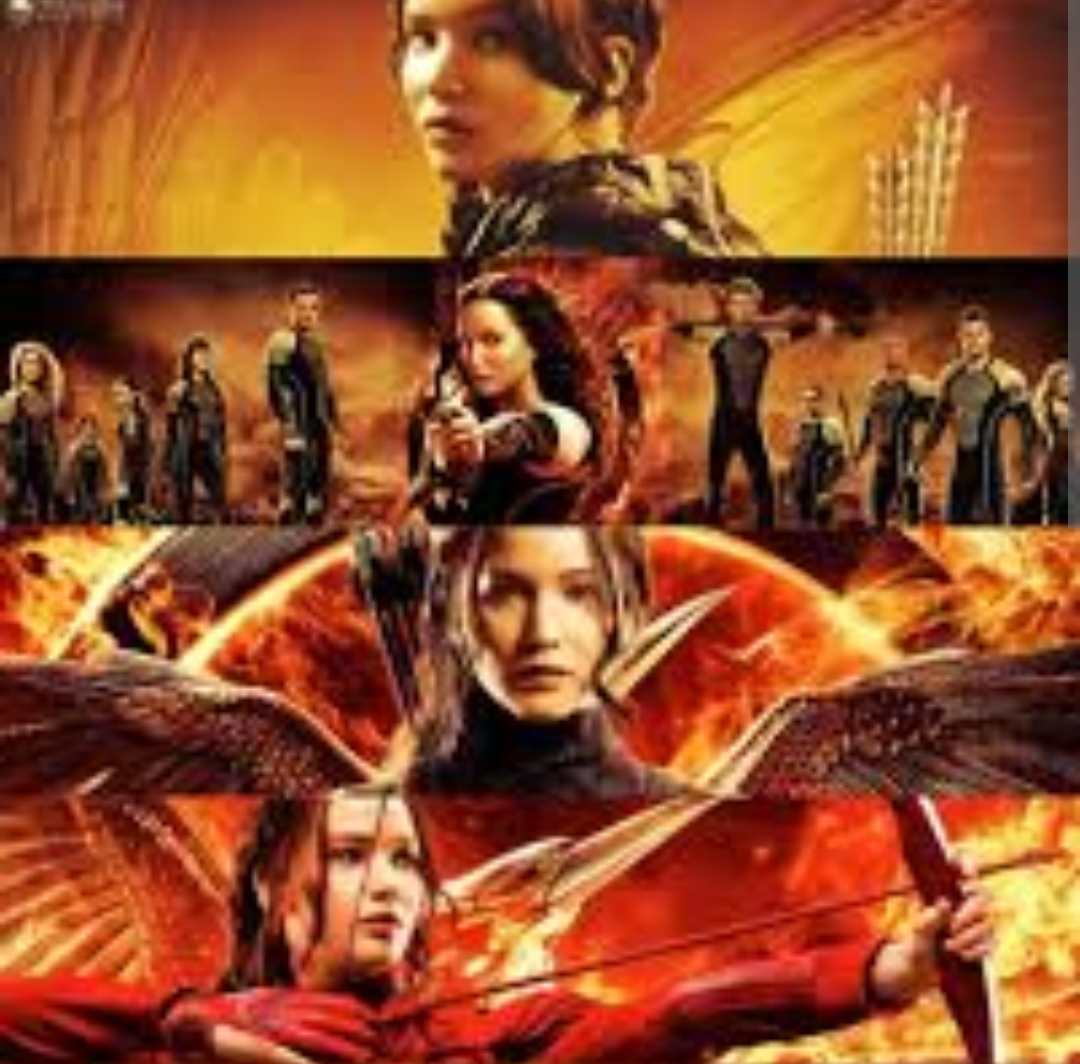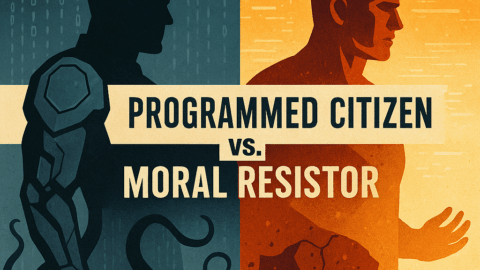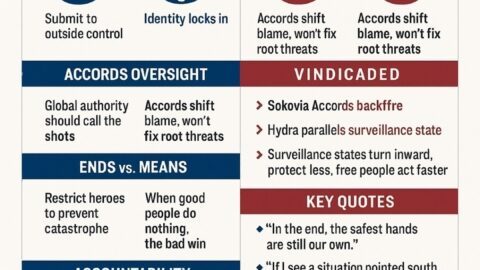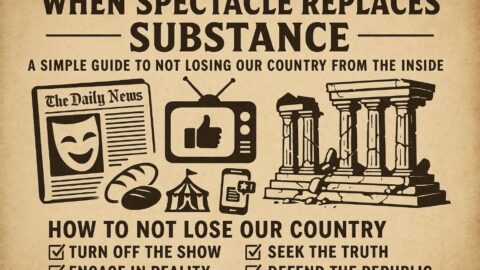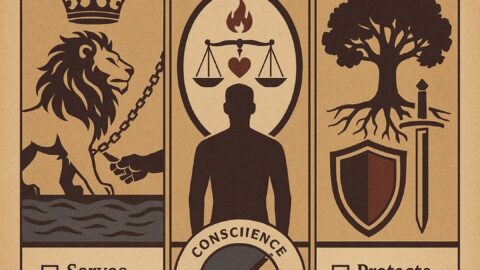How Fantasy in Movies and Books Helps Us Appreciate the Past & the Present
Fantasy stories in movies and books—like Star Wars, Captain America: Civil War, Transformers, The Lord of the Rings, Allegiant, Mockingjay, The Matrix and The Chronicles of Narnia—are more than just entertainment. They serve as mirrors to historical events, cultural values, and human struggles, allowing us to connect with and appreciate the past in unique and meaningful ways. Through allegory, moral dilemmas, and timeless archetypes, these stories bring history to life and how it parallels present conditions while teaching valuable lessons about humanity’s triumphs, failures, and resilience.
Fantasy as an Allegory for Historical Events
A. Reflection of War and Political Struggles
Fantasy often borrows themes and narratives from historical wars, revolutions, and political power struggles. These fictionalized conflicts make historical realities more accessible and emotionally engaging.
- Examples:
- The Lord of the Rings: Tolkien, having lived through World War I, infused the story with themes of industrialization, the horrors of war, and the loss of innocence. The One Ring symbolizes the corrupting power of unchecked authority.
- Star Wars: The Galactic Empire’s authoritarian rule mirrors Nazi Germany or the Soviet Union, while the Rebel Alliance represents resistance movements fighting for freedom.
- Captain America: Civil War: The ideological conflict between Captain America and Iron Man mirrors real-world debates around security versus personal liberty, similar to the historical tensions during 9/11.
Why It Matters: These stories encourage us to reflect on the consequences of war, the abuse of power, and the sacrifices made by individuals fighting for justice.
B. Themes of Revolution and Resistance
Fantasy often portrays revolutions and rebellions, echoing historical movements where oppressed groups fought for freedom and justice.
- Examples:
- Mockingjay (The Hunger Games): The rebellion against the oppressive Capitol parallels real-world revolutions like the French Revolution or resistance against colonial powers.
- Allegiant: The society in Divergent explores themes of societal division and rebellion against oppressive systems, reminiscent of historical struggles for equality and freedom.
- The Matrix: The resistance against the Machines symbolizes humanity’s struggle for freedom against oppressive technological or political control.
Why It Matters: By presenting these struggles in fantastical settings, these stories emphasize the universal values of courage, justice, and the human spirit’s resilience against oppression.
Exploration of Moral and Ethical Dilemmas
A. The Price of Leadership and Power
Fantasy stories often explore the burdens of leadership, the moral dilemmas of power, and the sacrifices leaders must make.
- Examples:
- The Lord of the Rings: Aragorn’s reluctant acceptance of his role as king echoes historical figures like King Alfred the Great or King Arthur who rose to leadership during times of crisis.
- Captain America: Civil War: The clash between Iron Man and Captain America reflects debates between authoritarian control (security) and individual freedom (liberty).
Why It Matters: These dilemmas force audiences to consider the difficult decisions leaders must make and their impact on society.
B. The Danger of Propaganda and Misinformation
Fantasy frequently portrays propaganda and its effects on society, drawing parallels to historical examples of manipulated narratives.
- Examples:
- Mockingjay: The use of media and propaganda by both President Snow and the rebellion highlights the power of controlling information, similar to wartime propaganda campaigns.
- Star Wars: Emperor Palpatine’s rise to power shows how fear and misinformation can be weaponized to manipulate entire societies.
- The Matrix: The simulation created by the Machines represents a metaphor for a controlled reality, echoing historical and modern fears about media manipulation.
Why It Matters: These stories caution us about the dangers of blind loyalty and the importance of critical thinking in the face of manipulated narratives.
Preservation and Celebration of Cultural Heritage
A. Mythology and Folklore
Many fantasy stories are deeply rooted in ancient myths, folklore, and cultural traditions, preserving them for modern audiences.
- Examples:
- The Lord of the Rings: Draws heavily from Norse mythology and Anglo-Saxon culture, preserving ancient storytelling traditions.
- The Chronicles of Narnia: Reflects Christian allegory and medieval symbolism, drawing from deep cultural and spiritual roots.
Why It Matters: These stories ensure that ancient myths, legends, and cultural traditions remain relevant and accessible to future generations.
B. Cultural Symbols and Rituals
Fantasy often showcases rituals, traditions, and symbols that reflect historical practices and cultural identities.
- Examples:
- Star Wars: The Jedi Order mirrors the monastic traditions of medieval knights and ancient samurai.
- The Fellowship of the Ring: The unity of different races (humans, elves, dwarves) echoes historical alliances formed against common enemies.
- The Matrix: The resistance against the Machines symbolizes humanity’s struggle for freedom against oppressive technological or political control.
Why It Matters: These elements teach us about the importance of cultural unity, heritage, and collective responsibility.
Timeless Human Struggles and Values
A. The Battle Between Good and Evil
Fantasy distills historical conflicts into archetypal battles between good and evil, making them universally relatable.
- Examples:
- The Lord of the Rings: Sauron’s overwhelming evil is met with the collective bravery of ordinary people like Frodo and Sam.
- Star Wars: The battle between the Rebellion and the Empire represents liberty versus tyranny.
- The Matrix: Neo’s journey is a symbolic fight for freedom against oppressive systems.
Why It Matters: These universal conflicts remind us of humanity’s ongoing fight against injustice and oppression.
B. Sacrifice and Redemption
Heroes in fantasy often face immense personal sacrifices, reflecting the real-life struggles of historical heroes.
- Examples:
- Frodo and Sam in The Lord of the Rings: Their arduous journey reflects the perseverance of soldiers during World War I.
- Captain America: Steve Rogers’ self-sacrifice symbolizes the courage of those who risk their lives for others to maintain personal liberty.
- Neo (The Matrix): Neo’s sacrifice symbolizes the ultimate act of heroism and selflessness.
Why It Matters: These stories honor the sacrifices made by individuals in real-world historical events.
Emotional Connection to Historical Themes
A. Processing Historical Trauma
Fantasy provides a safe space to process the emotional impact of traumatic historical events without directly reliving them.
- Examples:
- The Hunger Games: The oppressive rule of the Capitol reflects the psychological toll of totalitarian regimes.
- Star Wars: The destruction of planets and widespread fear echo the devastation of the sith to manipulate and gain control of the galatic government by a network of aligning interests (conspiracies).
- The Matrix: The dystopian world reflects societal fears of technological control and dehumanization.
Why It Matters: These stories help audiences empathize with historical traumas while offering hope and resolution.
B. Inspiring Hope and Resilience
Fantasy often concludes with hope, resilience, and triumph over adversity, reminding audiences of humanity’s strength.
- Examples:
- Mockingjay: Despite immense suffering, Katniss’s survival brings hope for societal change.
- The Lord of the Rings: Frodo and Sam’s perseverance demonstrates that even the smallest individuals can make a difference.
Why It Matters: These stories inspire resilience in the face of adversity, echoing real-world historical struggles.
Bridging the Past and Present Through Fantasy
A. Encouraging Reflection and Critical Thinking
Fantasy encourages audiences to reflect on historical events, question societal norms, and challenge authority.
- Examples:
- Captain America: Civil War: Raises questions about the balance of power and individual rights.
- The Hunger Games: Encourages critical thinking about inequality, control, and societal structures.
Why It Matters: These reflections help audiences draw connections between historical events and present-day issues.
B. Inspiring Social and Political Awareness
Fantasy stories often ignite a passion for justice, equality, and collective action.
- Examples:
- Allegiant: Explores themes of justice and rebellion against oppressive systems.
- Star Wars: Highlights the power of unity and resistance against authoritarianism.
Why It Matters: These stories inspire action and responsibility in shaping a better future.
Conclusion: The Power of Fantasy in Preserving the Past
Fantasy stories like Star Wars, Captain America: Civil War, Transformers, The Lord of the Rings, Allegiant, Mockingjay, and The Chronicles of Narnia are far more than just escapism. They are timeless reflections of history, cultural heritage, and human nature. By exploring war, leadership, resistance, and moral dilemmas in fantastical worlds, these stories allow us to better understand and appreciate the past, while also providing valuable lessons for the present and future.
These stories don’t just entertain—they educate, inspire, and remind us that the lessons of the past are vital for shaping our present and future. In essence, fantasy serves as a bridge between history, imagination, and humanity’s eternal quest for meaning and justice.

